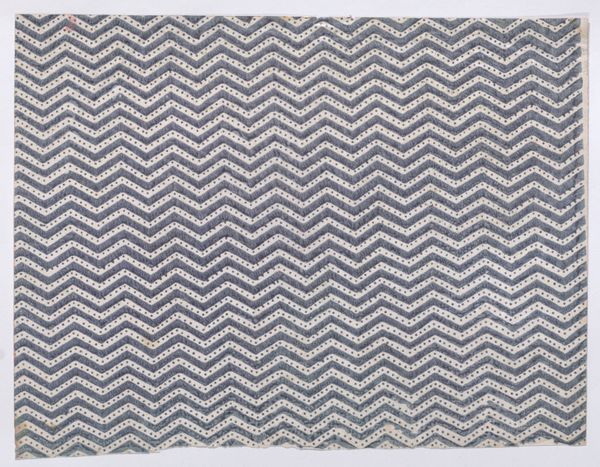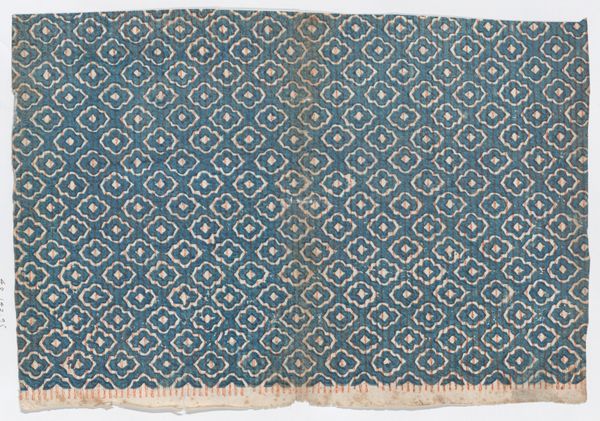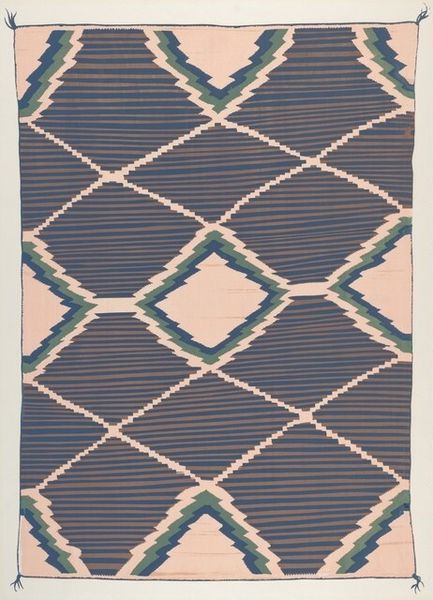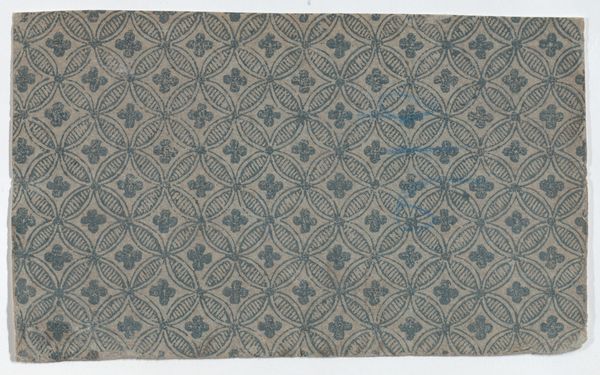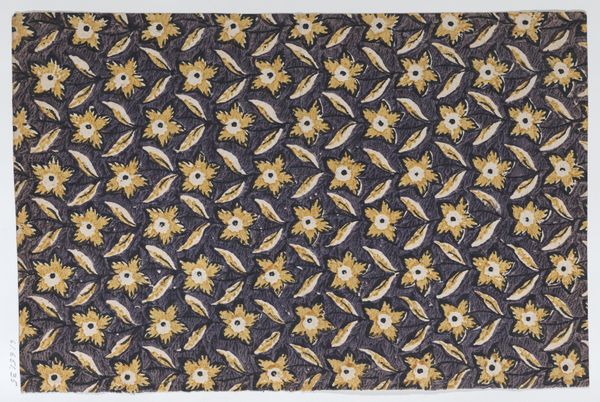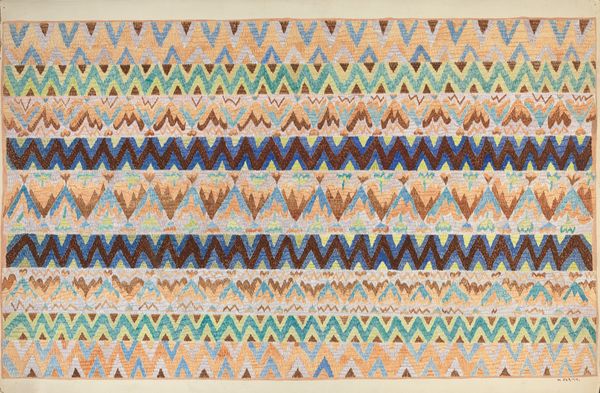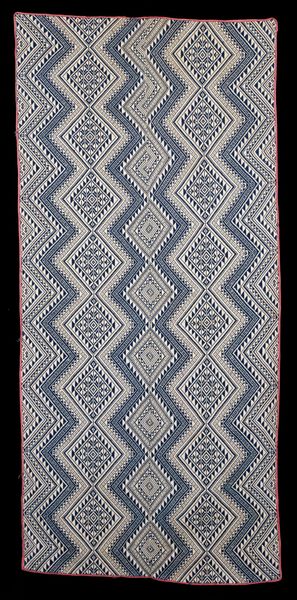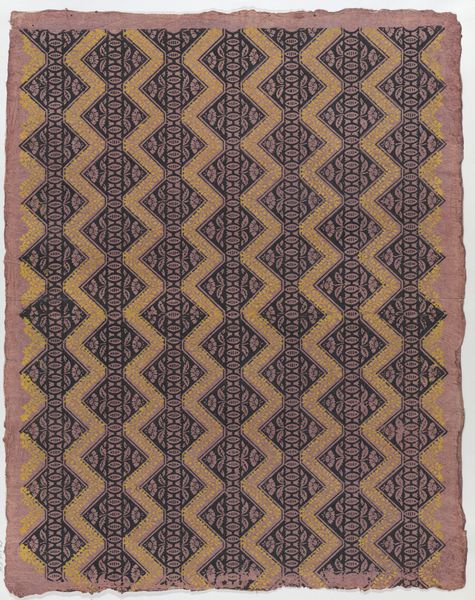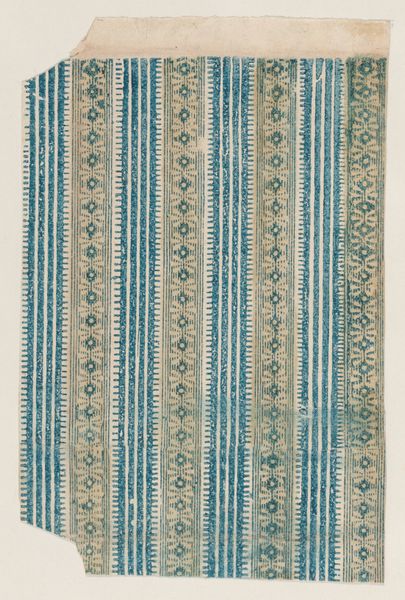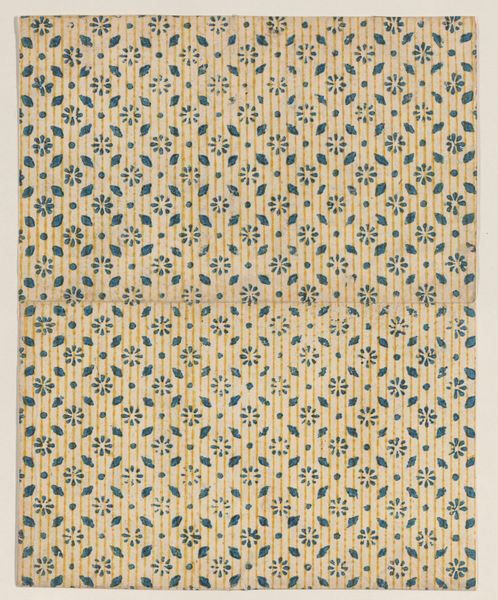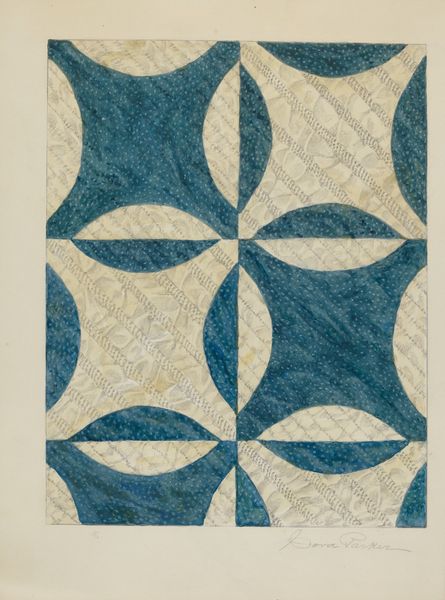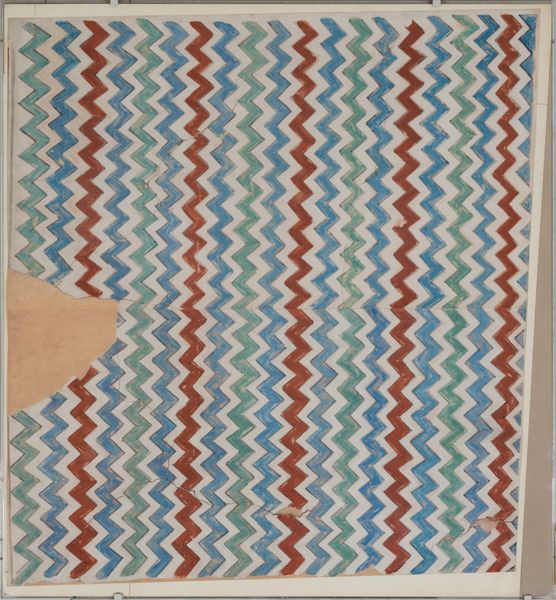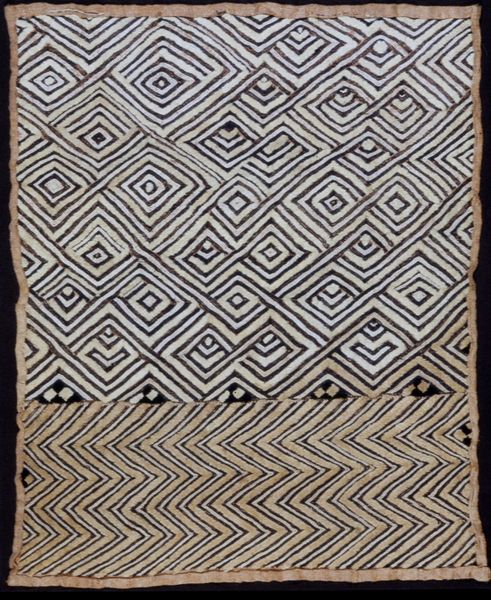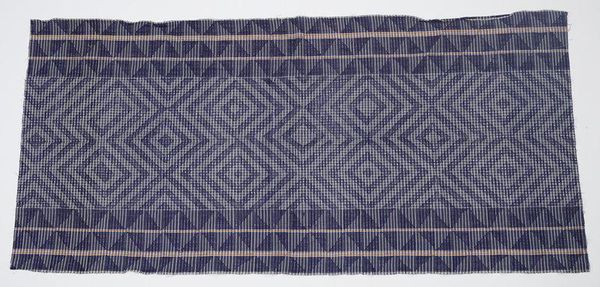
Book cover with black and blue abstract pattern 1800 - 1900
0:00
0:00
drawing, print, textile
#
drawing
# print
#
textile
#
geometric pattern
#
abstract pattern
#
organic pattern
#
geometric
#
pattern repetition
#
textile design
Dimensions: Sheet: 13 3/8 × 16 7/8 in. (33.9 × 42.8 cm)
Copyright: Public Domain
Editor: Here we have an intriguing book cover, dated sometime between 1800 and 1900, showcasing an abstract pattern in black and blue. It’s anonymous. I find its repeating geometric shapes oddly calming. How do you interpret this work, considering its time period and design? Curator: This piece invites us to consider the politics embedded within design and craft. During this era, the Industrial Revolution drastically changed textile production, often exploiting labor and erasing traditional craftsmanship. Is this abstract pattern a subtle form of resistance? Perhaps it reflects a yearning for handmade authenticity in a world becoming increasingly mechanized? The choice of blue and black might even signify a specific cultural or political affiliation. What feelings do those colours evoke in you? Editor: The blue makes me think of classic indigo dyes and trade routes. The dark color maybe a protest of some kind, against industrialization? Curator: Precisely. Considering that it is a book cover, could this design also be communicating something about the content of the book itself? Think about who would have purchased and used a book with this design, and what messages that would have sent. The patterns aren't simply decorative, they are carriers of meaning, reflecting the anxieties and aspirations of their time. Editor: I see what you mean! Now I’m considering the book's potential owner – were they a supporter of craft movements, or perhaps someone with more subversive political leanings? Curator: Exactly! By examining the intersection of art, industry, and social movements, we gain a deeper understanding of how seemingly simple designs can reflect complex power dynamics. Editor: This has totally changed how I view textile design; it’s not just about aesthetics but also about making a statement. Thank you. Curator: It’s in these quiet patterns that entire movements find their voice.
Comments
No comments
Be the first to comment and join the conversation on the ultimate creative platform.
